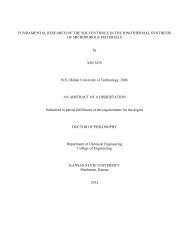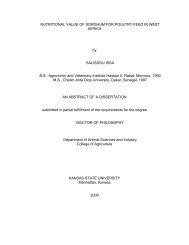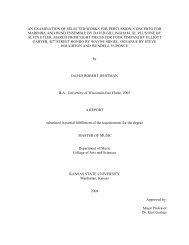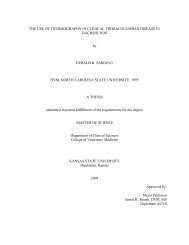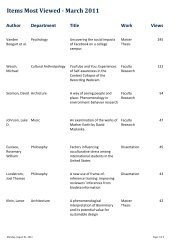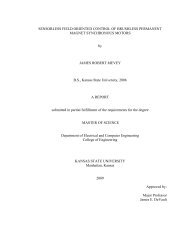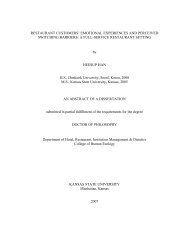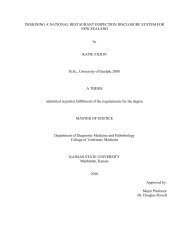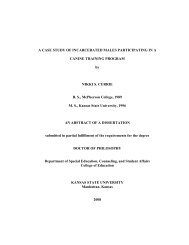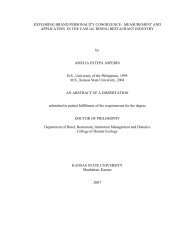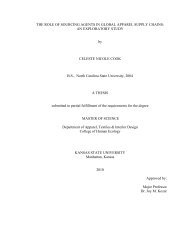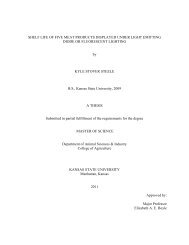SELFISH INTENTIONS - K-REx - Kansas State University
SELFISH INTENTIONS - K-REx - Kansas State University
SELFISH INTENTIONS - K-REx - Kansas State University
Create successful ePaper yourself
Turn your PDF publications into a flip-book with our unique Google optimized e-Paper software.
after five years away from <strong>Kansas</strong>, she had simply lost interest in the marriage, since no one who<br />
knew him believed that Charles Lease was the “deadbeat” husband that her petition claimed he<br />
was. He was just a man who made less money than his wife. The <strong>Kansas</strong> constitutional<br />
provisions that granted married women the right to their own property were probably on her<br />
mind: a divorce would allow Mary Lease to keep what was hers for her use alone. In any case,<br />
Charles Lease did not file a counter petition (although he could have accused her of<br />
“abandonment”). In fact the Wichita Daily Eagle reported her husband’s response:<br />
“Mrs. Lease is all right,” said Mr. Lease to a reporter for the Eagle yesterday,<br />
with sorrow depicted in every line of his face. “She is wonderfully ambitious, and<br />
I presume she thinks she can make her own way in the world better without me. I<br />
never made any resistance to her getting a divorce, when I once made up my mind<br />
that she desired to have one. …I have not one word to say against Mrs. Lease.<br />
She had to say something to get her divorce and my mind was made up to allow<br />
her to say whatever she thought best.” 2<br />
It appears that Charles and Mary Elizabeth Lease had mutually decided (although reluctantly on<br />
his part) to end the legal “contract” that had established their marriage. Why then did she accuse<br />
him of being a “ne’er do well husband” who “squandered” her earnings? 3 The answer is that the<br />
state of <strong>Kansas</strong> did not view the Lease marriage as a contract, but rather as a social unit in which<br />
the state had an interest. In seeking to end her marriage, Mary Elizabeth Lease’s petition had to<br />
fit one of the ten grounds that <strong>Kansas</strong> law allowed for divorces and all those “grounds” were<br />
based on the claim that one party had violated the very nature of the role he or she had assumed<br />
upon becoming a “husband” or a “wife.”<br />
2 Wichita Daily Eagle, “Mr. Lease is Forgiving,” May 25, 1902, Mary Elizabeth Lease folder, <strong>Kansas</strong> <strong>State</strong><br />
Historical Society, Topeka, <strong>Kansas</strong>.<br />
3 Price, 32.<br />
ix



